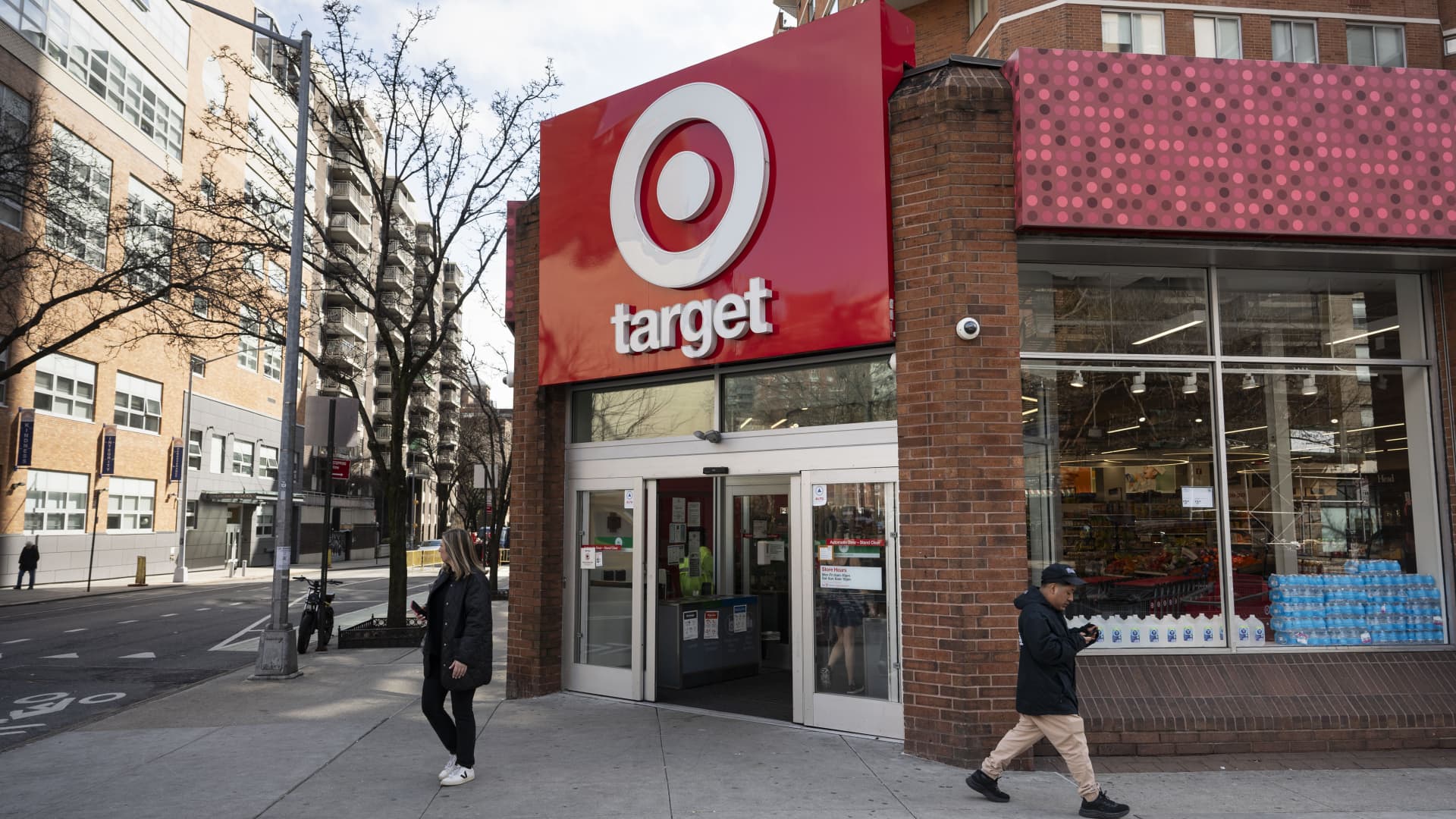Global Trends and Politics
Novo Nordisk offers discounted Wegovy through direct-to-consumer pharmacy

Novo Nordisk’s Wegovy Weight Loss Drug Sees Meteoric Rise in Popularity
Novo Nordisk on Wednesday said it will offer its weight loss drug Wegovy for less than half of its usual price per month through a new direct-to-consumer online pharmacy.
Direct-to-Consumer Online Pharmacy
The cash-pay offering is available to millions of patients without insurance coverage for the blockbuster injection. It aims to make Wegovy available to more people, while also ensuring that patients use the branded medication instead of cheaper compounded copycats that exploded in popularity during a recently resolved U.S. shortage of Novo Nordisk’s drug.
The pharmacy, called NovoCare, will allow patients to pay $499 in cash per month for the weekly drug. Wegovy’s list price before insurance and other rebates is almost $1,350 per month.
Patient Support Services
The site can also ship Wegovy prescriptions directly to patients’ homes through a specialty pharmacy partner. NovoCare will also offer refill reminders and access to live support from a case manager at the company, among other patient support services.
Industry Move
The company’s move follows a similar strategy from its main rival, Eli Lilly. The two companies are fighting to dominate the market for so-called GLP-1s, which mimic certain gut hormones to suppress appetite and regulate blood sugar.
Eli Lilly’s Direct-to-Consumer Online Pharmacy
Eli Lilly in January 2024 launched its own direct-to-consumer online pharmacy, LillyDirect, to help patients access its weight loss drug Zepbound. The website allows eligible patients to get a prescription through a telehealth provider and can provide home delivery. More recently, LillyDirect also started offering Zepbound in single-dose vials that are half or even less than its usual $1,000 monthly list price.
FDA Shortages
In recent months, the Food and Drug Administration has declared the U.S. shortages of both Zepbound and Wegovy over. That decision will prevent certain compounding pharmacies from creating unapproved versions of the injections.
Conclusion
Novo Nordisk’s new direct-to-consumer online pharmacy, NovoCare, aims to make Wegovy more accessible to patients, while also ensuring that they use the branded medication instead of cheaper compounded copycats. This move is part of the company’s efforts to dominate the market for GLP-1s, which mimic certain gut hormones to suppress appetite and regulate blood sugar.
FAQs
Q: What is Wegovy?
A: Wegovy is a weight loss drug developed by Novo Nordisk that works by mimicking certain gut hormones to suppress appetite and regulate blood sugar.
Q: What is the usual price of Wegovy?
A: The usual price of Wegovy before insurance and other rebates is almost $1,350 per month.
Q: How much will patients have to pay for Wegovy through NovoCare?
A: Patients will have to pay $499 in cash per month for Wegovy through NovoCare.
Q: What services will NovoCare offer to patients?
A: NovoCare will offer refill reminders and access to live support from a case manager at the company, among other patient support services.
Global Trends and Politics
Cha Begins Trading on Nasdaq

Introduction to Chagee
People shopping at a Chagee store in Shanghai, China, on Oct. 18, 2023. Costfoto | Nurphoto | Getty Images. Shares of Chinese tea chain Chagee climbed 15% during its public market debut on Thursday, as the company plans a U.S. launch despite trade tensions between Washington and Beijing.
Initial Public Offering
The stock, which is trading on the Nasdaq using the ticker "CHA," opened at $33.75 per share. Chagee shares soared as high as 49% initially but lost much of those gains during afternoon trading. The company priced its initial public offering at $28 per share on Wednesday, on the high end of its expected range of $26 to $28. Chagee sold 14.7 million shares, raising $411 million and valuing the company at roughly $5 billion.
Company Overview
Since its founding in 2017, the company has grown to more than 6,400 teahouses across China, Malaysia, Singapore and Thailand. Last year, Chagee generated net income of $344.5 million from revenue of $1.7 billion, according to regulatory filings. The company is preparing to open its first U.S. location later this spring at the Westfield Century City mall in Los Angeles.
Inspiration and Market
Founder and CEO Junjie Zhang created the chain after being inspired by the success of international coffee companies. China is Starbucks’ second-largest market. Chagee’s initial public offering follows several weeks of market turmoil after President Donald Trump imposed new tariffs and ignited a trade war with China. Other IPO hopefuls, including Klarna and StubHub, delayed their plans to go public after markets plunged.
Listing on U.S. Exchanges
In recent years, it has also become less popular for Chinese companies to list on U.S. exchanges. From January 2023 to January 2024, the number of Chinese companies listed on the three largest U.S. exchanges fell 5%, according to the U.S.-China Economic and Security Review Commission.
Conclusion
Chagee’s successful initial public offering and plans for U.S. expansion demonstrate the company’s confidence in its growth prospects, despite trade tensions and declining listings of Chinese companies on U.S. exchanges. With its strong financial performance and expanding global presence, Chagee is well-positioned for continued success in the competitive tea market.
FAQs
Q: What is Chagee?
A: Chagee is a Chinese tea chain with over 6,400 teahouses across China, Malaysia, Singapore, and Thailand.
Q: How did Chagee perform on its public market debut?
A: Chagee’s shares climbed 15% on its public market debut, with an initial opening price of $33.75 per share.
Q: What is Chagee’s plan for U.S. expansion?
A: Chagee is preparing to open its first U.S. location later this spring at the Westfield Century City mall in Los Angeles.
Q: How has the trade war between the U.S. and China affected Chagee’s IPO plans?
A: Despite the trade tensions, Chagee proceeded with its IPO plans, which were successful, raising $411 million and valuing the company at roughly $5 billion.
Q: What is the current trend for Chinese companies listing on U.S. exchanges?
A: The number of Chinese companies listed on the three largest U.S. exchanges has fallen 5% from January 2023 to January 2024, according to the U.S.-China Economic and Security Review Commission.
Global Trends and Politics
Best Practices for Implementing New Workplace Legislation: A Guide for Employers

Workplace legislation updates can be overwhelming, especially for small to medium-sized businesses. In recent years, there have been numerous changes to employment laws, leaving employers scrambling to ensure compliance. The #MeToo movement, for instance, has led to a surge in workplace harassment claims, highlighting the need for employers to review and update their policies. In this article, we will provide a comprehensive guide on best practices for implementing new workplace legislation.
Understanding the Legislation
Before implementing any new legislation, it’s essential to understand the requirements and implications. Employers must stay up-to-date with the latest changes and developments in employment law. The European Union’s General Data Protection Regulation (GDPR), for example, has had a significant impact on how employers handle employee data. Employers must ensure they are complying with the regulation’s requirements, such as obtaining explicit consent from employees and implementing data protection policies.
Key Legislation to Consider
There are several key pieces of legislation that employers must consider when implementing new workplace policies. The Equality Act 2010, for instance, prohibits discrimination in the workplace and requires employers to make reasonable adjustments for employees with disabilities. The National Minimum Wage Act 1998 sets the minimum wage rates for employees, and employers must ensure they are paying their employees at least the minimum wage.
Communicating Changes to Employees
Effective communication is crucial when implementing new workplace legislation. Employers must ensure that employees are aware of the changes and understand how they will be affected. A recent study by the Society for Human Resource Management found that employees who are informed about changes to workplace policies are more likely to be engaged and productive. Employers can use various methods to communicate changes, such as email, team meetings, or training sessions.
Best Practices for Communication
When communicating changes to employees, employers should be transparent and clear about the reasons for the changes. Employers should also provide employees with the opportunity to ask questions and provide feedback. The use of plain language and avoiding jargon can help ensure that employees understand the changes and their implications.
Updating Policies and Procedures
Once employers have communicated the changes to employees, they must update their policies and procedures to reflect the new legislation. This includes reviewing and updating employee handbooks, contracts, and other relevant documents. Employers must also ensure that their policies and procedures are consistent with the new legislation and that they are applied fairly and consistently.
Key Policies to Update
Employers must update several key policies to ensure compliance with new workplace legislation. These include policies on harassment, discrimination, and data protection. Employers must also update their policies on employee conduct, including social media use and attendance. The use of template policies can help employers ensure that their policies are comprehensive and up-to-date.
Training and Development
Training and development are essential for ensuring that employees understand the new legislation and their roles and responsibilities. Employers must provide employees with regular training and updates on new legislation and policies. A recent study by the Chartered Institute of Personnel and Development found that employees who receive regular training are more likely to be engaged and productive.
Best Practices for Training
When providing training, employers should use a variety of methods, such as workshops, online courses, and mentoring. Employers should also ensure that training is regular and ongoing, rather than a one-off event. The use of interactive and engaging training methods can help ensure that employees are interested and motivated to learn.
Monitoring and Evaluation
Finally, employers must monitor and evaluate the effectiveness of their new policies and procedures. This includes regularly reviewing and updating policies, as well as seeking feedback from employees. Employers must also ensure that they are complying with the new legislation and that their policies and procedures are having the desired impact.
Best Practices for Monitoring and Evaluation
When monitoring and evaluating the effectiveness of new policies and procedures, employers should use a variety of methods, such as surveys, focus groups, and performance metrics. Employers should also ensure that they are regularly reviewing and updating their policies and procedures to reflect changes in legislation and best practice.
Case Studies
Several companies have successfully implemented new workplace legislation, demonstrating the benefits of effective communication, training, and monitoring. For example, the tech company, Google, has implemented a range of policies and procedures to promote diversity and inclusion in the workplace. The company has also provided regular training and updates to employees on new legislation and policies.
Lessons Learned
From these case studies, we can learn several key lessons about implementing new workplace legislation. Firstly, effective communication is crucial for ensuring that employees understand the changes and their implications. Secondly, regular training and updates are essential for ensuring that employees are aware of their roles and responsibilities. Finally, monitoring and evaluation are critical for ensuring that new policies and procedures are having the desired impact.
Conclusion
In conclusion, implementing new workplace legislation requires careful planning, effective communication, and ongoing monitoring and evaluation. Employers must stay up-to-date with the latest changes and developments in employment law and ensure that their policies and procedures reflect the new legislation. By following the best practices outlined in this guide, employers can ensure that they are complying with the new legislation and promoting a positive and productive work environment.
Frequently Asked Questions
Here are some frequently asked questions about implementing new workplace legislation:
Q: What are the key pieces of legislation that employers must consider when implementing new workplace policies?
A: The key pieces of legislation that employers must consider include the Equality Act 2010, the National Minimum Wage Act 1998, and the General Data Protection Regulation (GDPR).
Q: How can employers effectively communicate changes to employees?
A: Employers can effectively communicate changes to employees by using plain language, avoiding jargon, and providing employees with the opportunity to ask questions and provide feedback.
Q: What are the benefits of providing regular training and updates to employees?
A: The benefits of providing regular training and updates to employees include increased engagement and productivity, as well as ensuring that employees are aware of their roles and responsibilities.
Q: How can employers monitor and evaluate the effectiveness of their new policies and procedures?
A: Employers can monitor and evaluate the effectiveness of their new policies and procedures by using a variety of methods, such as surveys, focus groups, and performance metrics.
We hope this guide has provided you with a comprehensive overview of the best practices for implementing new workplace legislation. By following these best practices, employers can ensure that they are complying with the new legislation and promoting a positive and productive work environment!
Global Trends and Politics
Target CEO Brian Cornell Meets with Al Sharpton Amid DEI Rollback

Introduction to the Issue
People walk past Target Store in Midtown Manhattan on March 6, 2025 in New York City, United States. Target CEO Brian Cornell met with the Rev. Al Sharpton in New York as the retailer faces calls for a boycott and a slowdown in foot traffic that began after it walked back key diversity, equity and inclusion programs, the civil rights leader told CNBC Wednesday.
Background on the Meeting
The meeting, which Target asked for, comes after some civil rights groups urged consumers not to shop at Target in response to the retailer’s decision to cut back on DEI. While Sharpton has not yet called for a boycott of Target, he has supported efforts from others to stop shopping at the retailer’s stores. "You can’t have an election come and all of a sudden, change your old positions," Sharpton told CNBC in a Wednesday interview ahead of the meeting. "If an election determines your commitment to fairness then fine, you have a right to withdraw from us, but then we have a right to withdraw from you."
Demands and Expectations
The civil rights leader said he would consider calling for a Target boycott if the company doesn’t confirm its commitment to the Black community and pledge to work with and invest in Black-owned businesses. "I said, ‘If [Cornell] wants to have a candid meeting, we’ll meet,’" Sharpton said of the phone call Target made to his office. "I want to first hear what he has to say." A Target spokesman confirmed to CNBC that the company reached out to Sharpton for a meeting and that Cornell will talk to him in New York this week.
Aftermath of the Meeting
On Thursday afternoon, Sharpton issued a statement after the meeting, calling it "constructive and candid." "I am going to inform our allies, including Rev. Dr. Jamal Bryant, of our discussion, what my feelings are, and we will go from there," said Sharpton. Bryant, a pastor in the Atlanta area, organized a 40-day boycott of Target that began in early March. The pastor has weighed whether to extend it and Sharpton had considered taking the boycott national.
Impact on Target
In January, Target said it would end its three-year DEI goals, no longer share company reports with external diversity-focused groups like the Human Rights Campaign’s Corporate Equity Index and end specific efforts to get more products from Black- and minority-owned businesses on its shelves. Just days after the announcement, foot traffic at Target stores started to slow down. Since the week of Jan. 27, Target’s foot traffic has declined for 10 straight weeks compared to the year-ago period, according to Placer.ai, an analytics firm that uses anonymized data from mobile devices to estimate overall visits to locations.
Wider DEI Retreat
With its decision to roll back DEI efforts, the cheap chic retailer Target joined Walmart, McDonald’s, Tractor Supply and a slew of others that scrapped at least some DEI initiatives as they grew concerned that the programs could alienate some customers or land them in the crosshairs of President Donald Trump, who has vowed to end every DEI program across the federal government. Target’s decision contrasted with Costco, which shook off pressure from conservative activists to maintain its DEI programs.
Comparison with Other Companies
In the month of March, Target’s store traffic declined 6.5%, while the metric rose 7.5% year over year at Costco, Placer.ai data show. Target’s challenges run deeper than DEI backlash, and resistance to its policy change only added to its issues. The discounter’s annual revenue has been roughly flat for four years in a row as it’s struggled to drive consistent sales gains.
Questions and Commitments
In his meeting with Cornell, Sharpton said he will ask for Target to follow through on pledges it made after police killed George Floyd in the company’s hometown of Minneapolis. "You made commitments based on the George Floyd movement … what changed?" said Sharpton. "Are you trying to say … everything’s fine now, because the election changed? That’s insulting to us." In the wake of Floyd’s murder, Cornell said the event moved him.
Conclusion
The meeting between Target CEO Brian Cornell and the Rev. Al Sharpton marks a significant moment in the ongoing debate over diversity, equity, and inclusion programs in corporate America. As companies face pressure from both sides, they must navigate complex issues of social responsibility, customer expectations, and bottom-line concerns. The outcome of this meeting and the subsequent actions of Target and other companies will be closely watched, as they have the potential to impact not only the companies themselves but also the broader social landscape.
FAQs
Q: What prompted the meeting between Target CEO Brian Cornell and the Rev. Al Sharpton?
A: The meeting was prompted by Target’s decision to roll back its diversity, equity, and inclusion (DEI) programs, which led to calls for a boycott and a slowdown in foot traffic at Target stores.
Q: What did Sharpton say about Target’s decision to end its DEI goals?
A: Sharpton expressed disappointment and frustration, stating that Target’s decision was insulting and suggested that the company was abandoning its commitments to the Black community.
Q: How has Target’s foot traffic been affected since the announcement?
A: According to Placer.ai, Target’s foot traffic has declined for 10 straight weeks compared to the year-ago period, with a 6.5% decline in March.
Q: How does Target’s decision compare to other companies?
A: Target’s decision to roll back DEI efforts is part of a wider trend, with companies like Walmart, McDonald’s, and Tractor Supply also scaling back their DEI initiatives. However, companies like Costco have maintained their commitment to DEI programs.
Q: What is the potential impact of the meeting between Cornell and Sharpton?
A: The meeting could lead to Target reaffirming its commitment to DEI programs or facing further backlash, including a potential boycott. The outcome will be closely watched, as it has implications for the company, its customers, and the broader social landscape.
-

 Career Advice4 months ago
Career Advice4 months agoInterview with Dr. Kristy K. Taylor, WORxK Global News Magazine Founder
-

 Diversity and Inclusion (DEIA)4 months ago
Diversity and Inclusion (DEIA)4 months agoSarah Herrlinger Talks AirPods Pro Hearing Aid
-

 Career Advice4 months ago
Career Advice4 months agoNetWork Your Way to Success: Top Tips for Maximizing Your Professional Network
-

 Changemaker Interviews3 months ago
Changemaker Interviews3 months agoUnlocking Human Potential: Kim Groshek’s Journey to Transforming Leadership and Stress Resilience
-

 Diversity and Inclusion (DEIA)4 months ago
Diversity and Inclusion (DEIA)4 months agoThe Power of Belonging: Why Feeling Accepted Matters in the Workplace
-

 Global Trends and Politics4 months ago
Global Trends and Politics4 months agoHealth-care stocks fall after Warren PBM bill, Brian Thompson shooting
-

 Global Trends and Politics4 months ago
Global Trends and Politics4 months agoUnionization Goes Mainstream: How the Changing Workforce is Driving Demand for Collective Bargaining
-

 Training and Development4 months ago
Training and Development4 months agoLevel Up: How Upskilling Can Help You Stay Ahead of the Curve in a Rapidly Changing Industry









